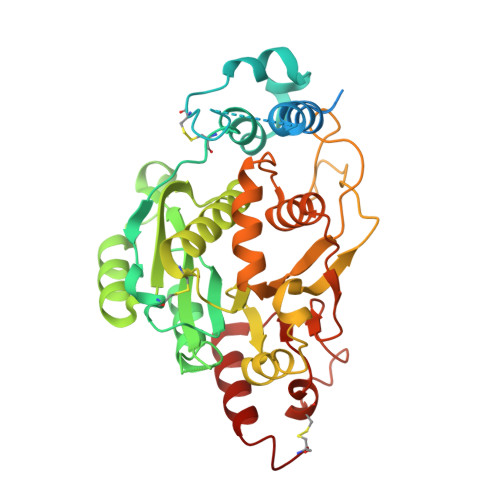Imidazolone as an Amide Bioisostere in the Development of beta-1,3- N -Acetylglucosaminyltransferase 2 (B3GNT2) Inhibitors.
Jackson, J.J., Siegmund, A.C., Bai, W.J., Reed, A.B., Birkholz, A.B., Campuzano, I.D.G., Crequer-Grandhomme, A., Hu, R., Modak, R.V., Sudom, A., Javier, N., Sanders, C., Lo, M.C., Xie, F., Cee, V.J., Manzanillo, P., Allen, J.G.(2023) J Med Chem 66: 16120-16140
- PubMed: 37988652
- DOI: https://doi.org/10.1021/acs.jmedchem.3c01517
- Primary Citation of Related Structures:
8SZ3, 8TIC, 8TJC - PubMed Abstract:
B3GNT2 is responsible for elongation of cell surface long-chain polylactosamine, which influences the regulation of the immune response, making it an attractive target for immunomodulation. In the development of amide containing B3GNT2 inhibitors guided by structure-based drug design, imidazolones were found to successfully serve as amide bioisosteres. This novel imidazolone isosteric strategy alleviated torsional strain of the amide bond on binding to B3GNT2 and improved potency, isoform selectivity, as well as certain physicochemical and pharmacokinetic properties. Herein, we present the synthesis, SAR, X-ray cocrystal structures, and in vivo PK properties of imidazol-4-ones in the context of B3GNT2 inhibition.
- Small Molecule Therapeutic Discovery, Amgen Research, Amgen Inc., One Amgen Center Drive, Thousand Oaks, California 91320, United States.
Organizational Affiliation:



















